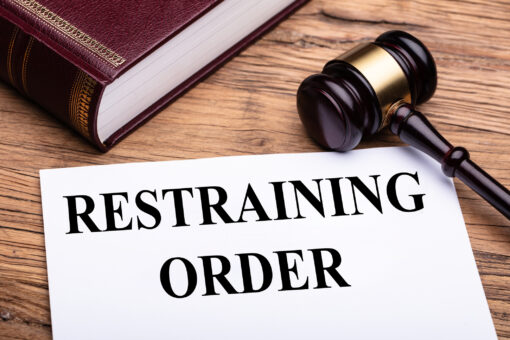In the United States, especially right here in California, elder abuse is an all too prevalent occurrence. Due to this, the California government has passed some protections expressly for elder and dependent individuals, who are classified as those between the ages of 18 and 64 who have certain disabilities as well as those 65 and older.
Restraining orders issued in elder abuse cases are designed to safeguard these defenseless Californians from mistreatment on a physical, mental, and/or financial level. Restraining orders against elder abuse are civil in nature, yet breaking one of these orders might result in criminal penalties. Read ton to learn more and then contact Chambers Law Firm at 714-760-4088 if you are facing elder abuse charges or are accused of violating an elder abuse restraining order.
How Elder Abuse Restraining Orders Are Issued
It’s crucial to comprehend the requirements for obtaining an elder abuse restraining order in the case of an aged adult. A person may request an emergency protective order (EPO) from a law enforcement officer in California if they or a senior loved one are in immediate danger. These EPOs, however, run out in five to seven days. Anyone who fears elder abuse or neglect should generally file a petition for an elder abuse restraining order.
An elder abuse restraining order may be given to a victim of any sort of elder abuse, including financial, emotional, sexual, or physical, claims. Elder abuse itself can be charged for neglect, isolation, or abandonment; physical or financial abuse; denial or withholding of goods and services required to meet basic needs and avoid physical, mental, or emotional suffering or injury; and/or behavior that will result in bodily harm or mental anguish.
Many Individuals Might File for an Elder Abuse Restraining Order
Elder abuse victims themselves, as well as conservators or other agents with the authority to act on their behalf, may file a petition for an elder abuse restraining order. An emergency temporary restraining order (TRO) may be issued by the court the same day that the paperwork is filed or the following working day. A hearing to decide whether a permanent elder abuse restraining order should be granted will also be scheduled at this time by the court. This hearing shall be set within twenty-one (21) days.
A Domestic Violence Restraining Order Can Also Be Issued
An older individual may also apply for a domestic violence restraining order, depending on who the accused abuser is. If the alleged abuser is a member of the child’s immediate family, spouse, current or previous romantic partner, or other parent, this kind of order may be sought.
On the grounds that the old person has the legal right to inhabit the home and runs the risk of suffering emotional or bodily harm in the absence of such an order, a court may also order a residential exclusion, giving the elderly person exclusive use of the residence. Finally, the alleged abuser must surrender any firearms and is prohibited from possessing or acquiring any firearms while the restraining order is in effect, unless the abuse is strictly financial.
Restraining Orders Are Civil – Not Criminal – But They Can Still Have a Serious Impact on Your Life
Restraining orders for domestic violence and elder abuse are both civil; they won’t show up on your criminal record. In spite of this, they can seriously affect your life. An elder abuse restraining order puts you at risk of being forced to leave your home and forfeit your constitutional rights, and any breach of the order could result in criminal charges.
A first offense of violating an elder abuse restraining order is typically upgraded to a misdemeanor in California, punishable by up to a year in jail and up to $1,000 in fines. A judge may also demand payments to a shelter for victims of domestic violence, mandated counseling, and restitution.
More severe repercussions may follow a second or more significant violation of a restraining order against elder abuse within a seven-year window. This is a wobbler offense, meaning that depending on the circumstances of the case and your criminal record, a prosecutor may charge it as a felony or misdemeanor. The same penalty as above applies to a misdemeanor.
Yet, a felony conviction could result in up to $10,000 in fines and a sentence of 16 months to 3 years in a California state jail. However, you may face a second misdemeanor penalty if you knowingly possess a firearm while under a restraining order.
You will require the services of an experienced attorney to defend you if you have been accused of elder abuse. To schedule a free initial consultation with an elder abuse lawyer in Los Angeles, California, call the Chambers Law Firm at 714-760-4088 or email dchambers@clfca.com right now.





